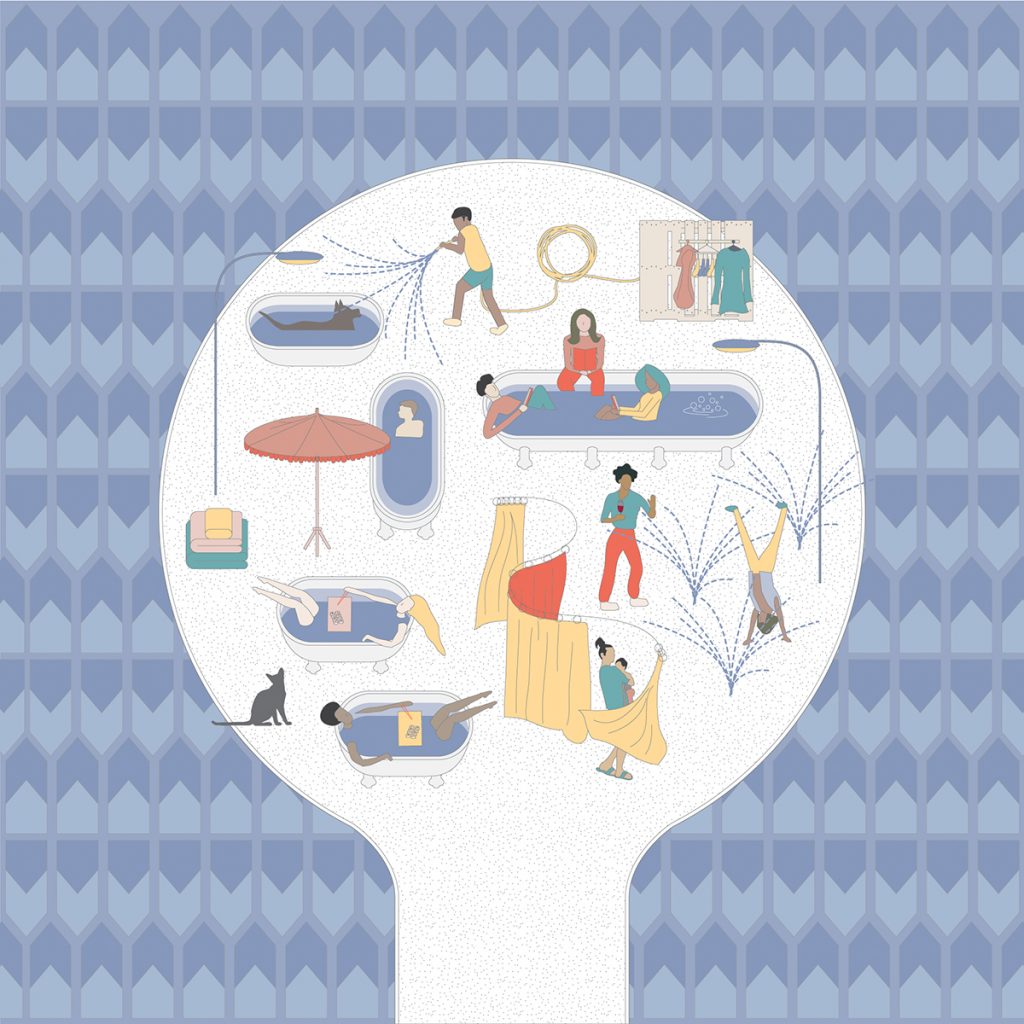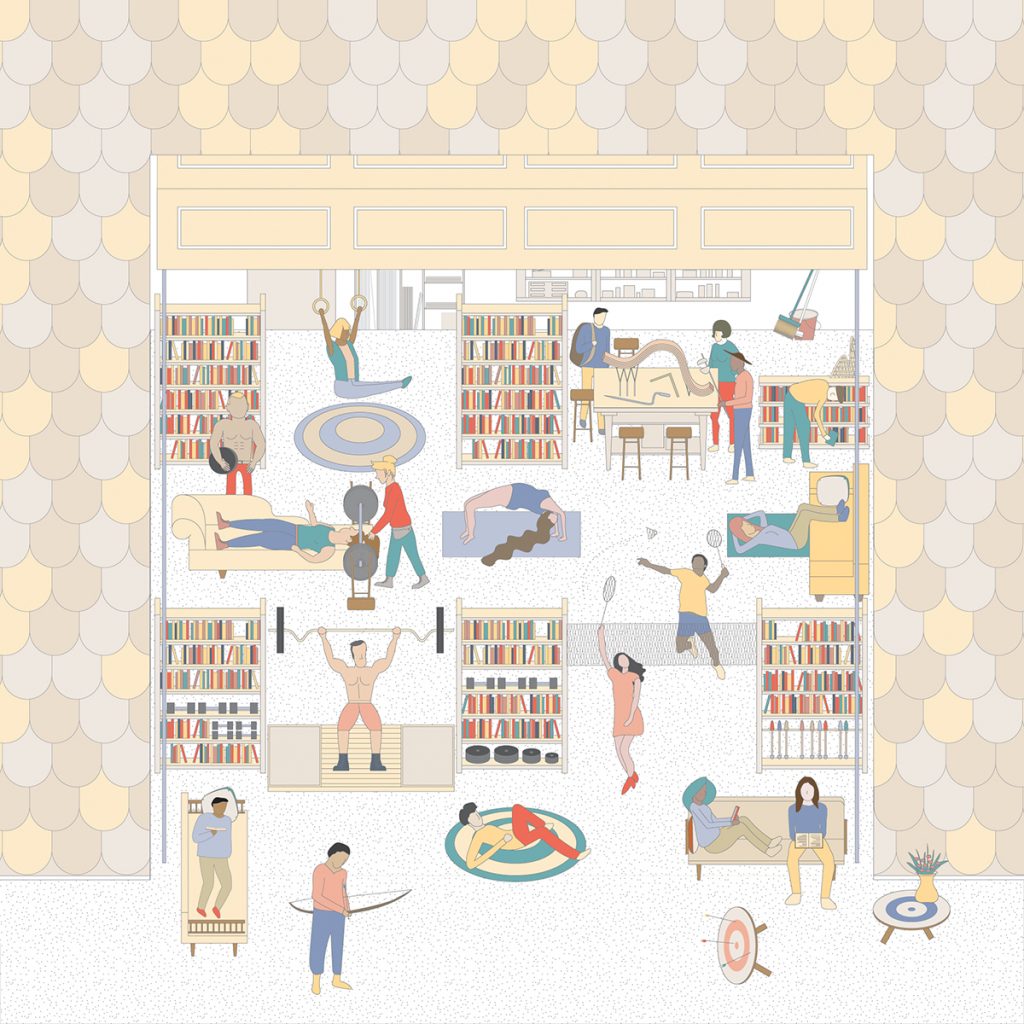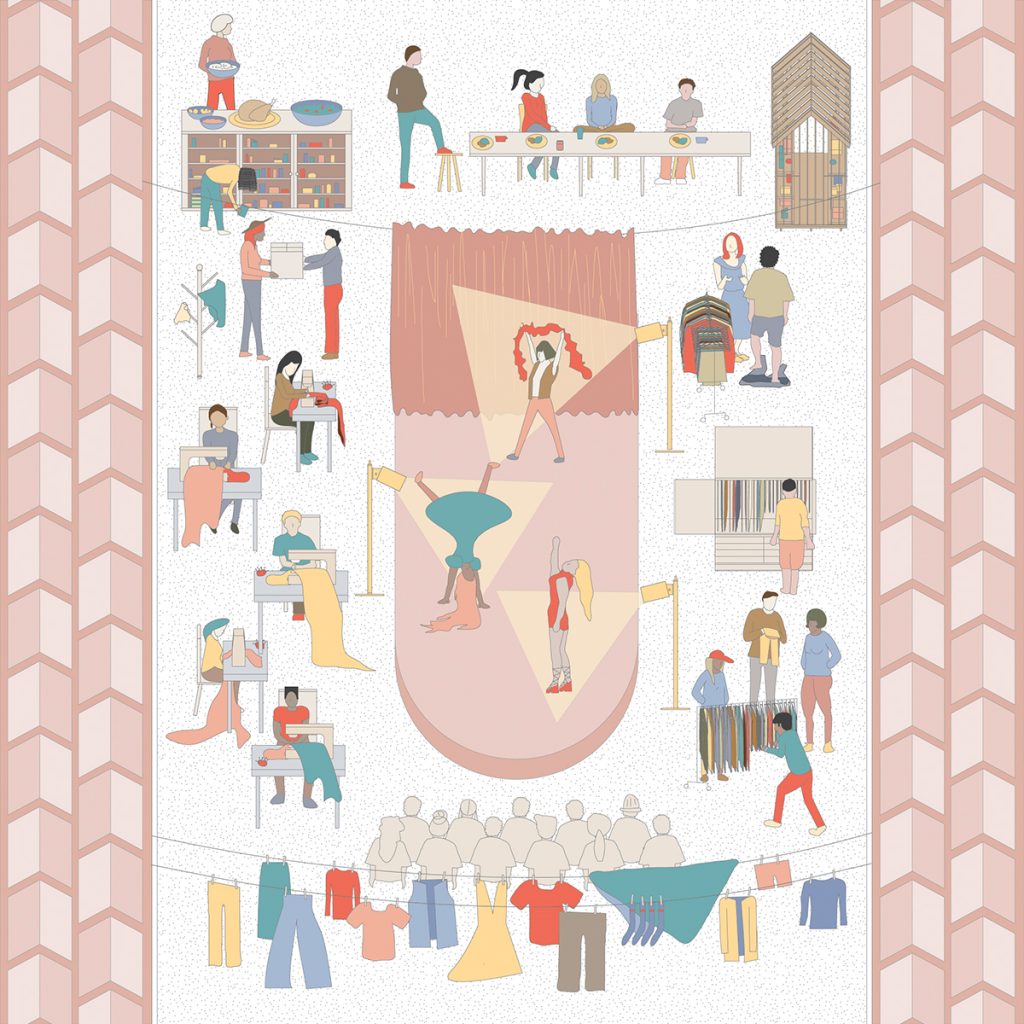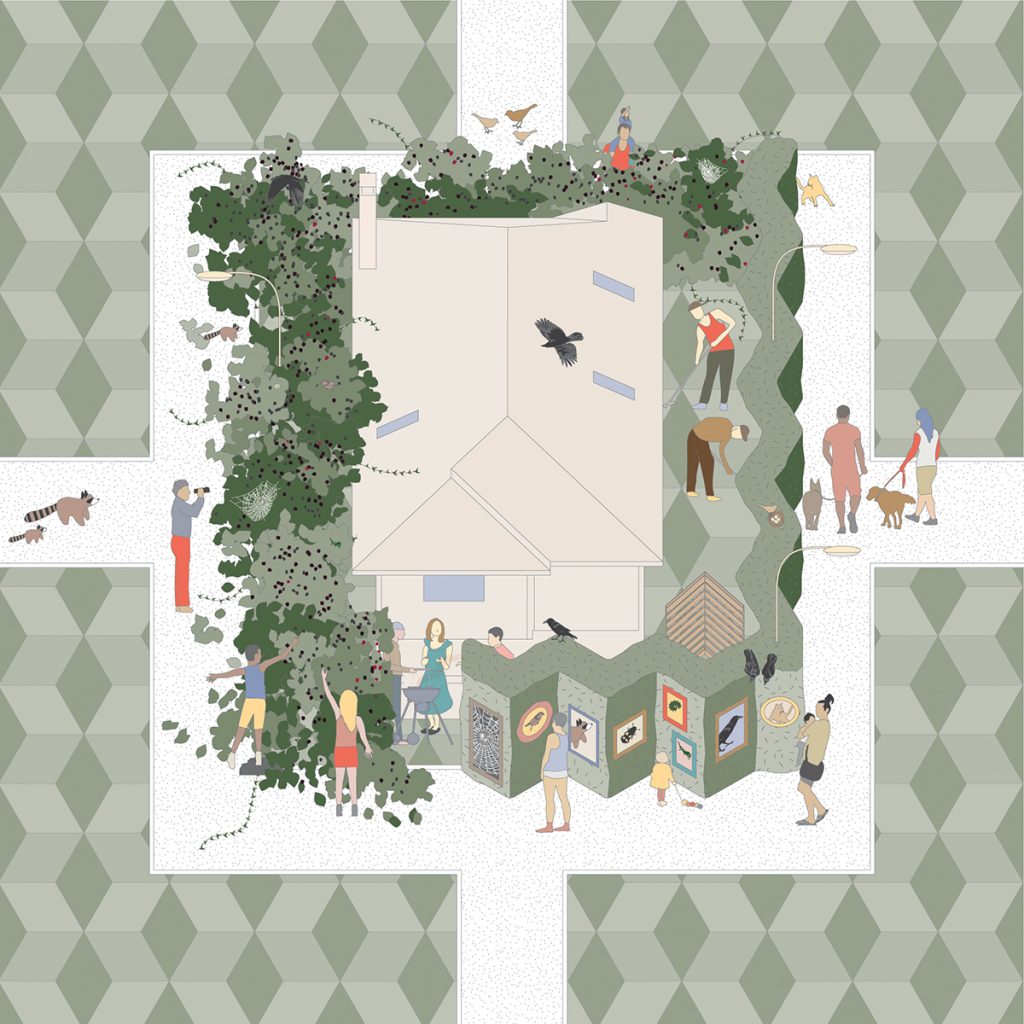Bloc/Party:
Sharing Against the Sharing Economy
Research paper and series of four drawings, published in Bracket Journal no.4 [On Sharing] (forthcoming).
Collaborators: Roy Cloutier, Nicole Sylvia, Lőrinc Vass

As the age-old notion of ‘sharing’ passes into contemporary capitalism to become the basis of ‘the sharing economy,’ its character changes fundamentally—taking on deeply aporetic implications. On one hand, the networks of this platform capitalism allow a distributed, fluid mode of exchange, fostering forms of flux and openness that exceed the comparatively-static models that preceded it. By altering patterns of interaction, consumption, travel, and more, digital sharing platforms are re-shaping the way private and public spaces are conceived and used for work, leisure, and living. On the other hand, this fluidity is too often accompanied by a dissolution of stability and mutual obligation, leading to precarious forms of life. The sharing economy is always in motion, for better or for worse.
This inherent aporia of the sharing economy parallels similar tensions within architecture itself, which, over the past two-plus decades, has come to embrace an ordering logic uncannily similar to that of neoliberalism. Sometimes termed managerialism or, following late Deleuze, modulation, this tendency sees designers increasingly working infra- to the everyday. These projects seek to define networks that not only foster but reshape and actively harness an entrepreneurial self-organization and emergence—operating in a manner peculiarly similar to the platform-capitalists of Uber or Airbnb.
The distributed, immanent forms of power that underlie both sharing platforms and the current preoccupations of architecture raise a host of questions—not least around issues of agency and ethics. How might sharing recapture its heritage in commoning, solidarity, and collective action? Could spatialized counter-platforms form a basis for sharing of not only goods, but also space and agency? In turn, what are the architectures—the collective forms—of such a model of collective self-organization, and how might they point toward new modes of urban coexistence? In this way, sharing becomes a cipher for our understandings of the city itself, suggesting ways to collectively construct a truly con-vivial city—excavating from the etymological root of the word a generous, ebullient sense of living-with. In such a reworking of the dominant spatial practices of neoliberalism, architects can open new ways to reclaim sharing from the sharing economy.
In pursuit of a reclamation of sharing and a realization of its urbanistic potential for empowerment, a series of four speculative vignettes illustrate aspects of how a convivial city might take form. These are gathered under the triple-entendre fiction of a Bloc/Party: in one sense, turning attention to the political unit that a collective can form (a bloc or party); in another, rescaling this politics to the meso-political sphere around the production of space in a physical, localized unit (a block)—all the while not losing sight of the core of conviviality that binds collectives together (a party). This is a spatialized politics in which differences are negotiated via commoning; it yields emergent forms of collectivity and political solidarity, and is underpinned by a lively conviviality between participants. The vignettes suggest new roles for the architect as co-stewards of these processes, helping them take form and change form as they play out. By speculatively drawing out emergent social practices, object-relations, subject-positions, and spatial conditions, the vignettes implicitly implicate new capacities of the architect within systems and institutions of commoning.


